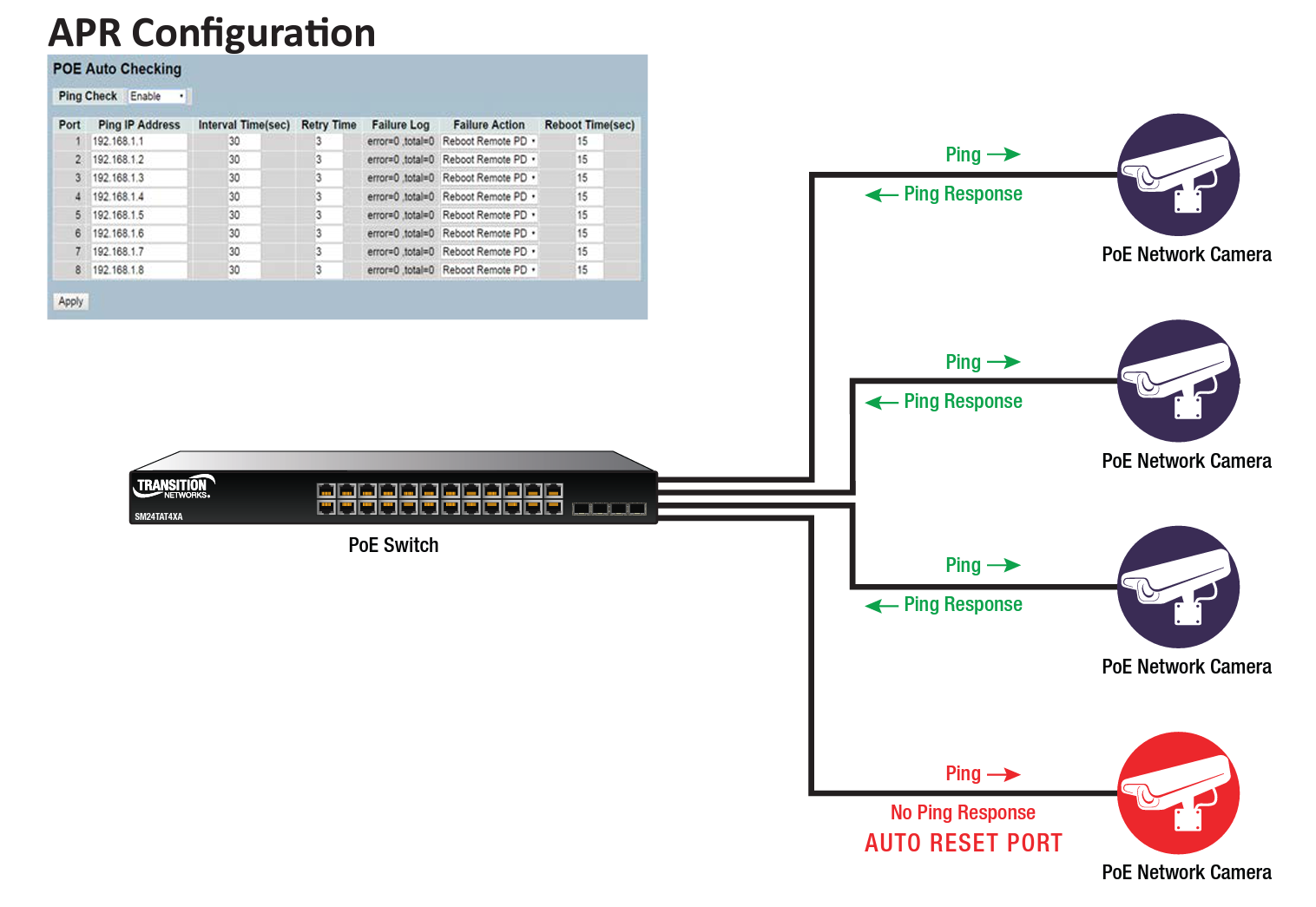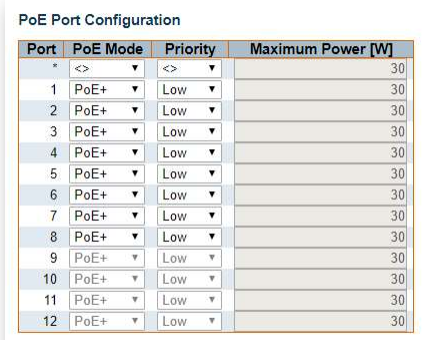PoE - Proprietary Features
At this point, we now know that there are widely-adopted standards for PoE from IEEE known as 802.3af, 802.3at, 802.3bt. In addition to these standards, there are several useful proprietary features that many vendors may have in one form or another. Some of these features include:
PoE scheduling
PoE resetting
PoE power budgetting
PoE action
PoE extend mode
We’ll briefly cover these features and applications below.
PoE Scheduling
PoE scheduling is a feature that allows the PSE to control what times during the day/week a port will have power. This is a useful feature to save on power costs/restrictions. Imagine having a remote camera system powered by solar panel and battery. In this case, we need to make sure the power delivered by the solar panel is enough for the camera system. Having a scheduling feature may be helpful here.
Example configuration of PoE scheduling port selection source
Example of PoE scheduling time selection source
PoE Resetting
This feature allows the PSE to check the PD for failure. If there is a failure, the port will reset power on the port in an attempt to reconnect. Imagine a scenario where we have a PD that locks up. Rather than physically going to the PD (which may be in a remote location) or PSE and removing and reconnecting the cable, the PSE will “power cycle” the port.
PoE resetting can be a first defense of troubleshooting non-responsive PDs. source
PoE Power Budgeting
This feature allows configuration of the maximum amount of power a PD can draw. If the maximum allowed power is exceeded, that specific port is shut down.
Priority can be assigned so that the order of shutting down ports can be controlled.
The power budgetting feature is useful to control power management at each PD. Imagine having critical cameras and guest WiFi APs on the same PSE. We definitely don’t want power turned off to the cameras if the power budget has been exceeded by adding another PoE device. With the power budgetting feature, we can control what devices utilize this feature and what order to prioritize shut down.
Example of PoE power budgetting configuration source
Another example of PoE power budgetting configuration source
PoE Action
With some vendors, it is possible to trigger PoE power based on I/O. This can be a useful feature to save power cost by running a PoE device only when the desired conditions are true.
Run a timed routine for you PoE PD when triggered source
PoE Extend Mode
In certain applications, it may be more useful to have a longer distance than 100 meters and less important to have higher data transfer speeds (100 Mbps+). Many vendors have an option for an extend mode where the PSE can support a distance of up to 250 meters (10 Mbps).
Simplify your long distance installation without the need for an extender source
Wrap up
As you can see, there’s quite a few features that vendors have developed that may be a good fit for your specific application. We hope you enjoyed this blog series on PoE and learned something new! Please reach out if you need help with your next PoE project.







